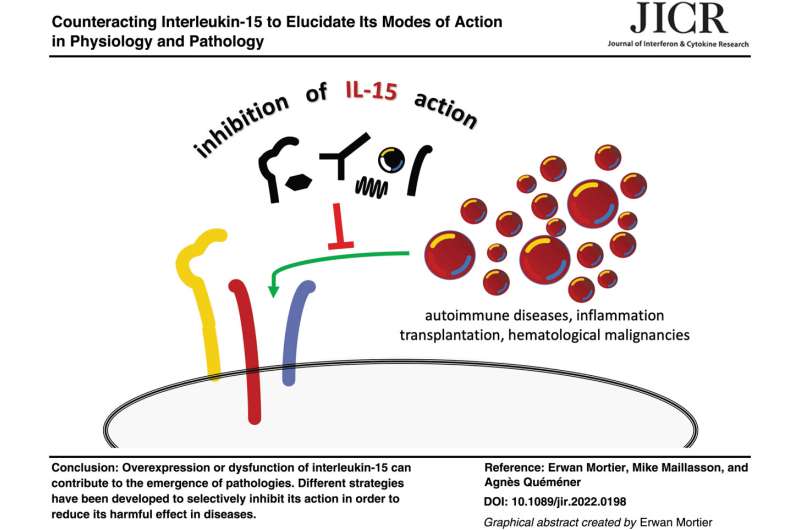Graphical abstract. Credit: Journal of Interferon & Cytokine Research (2023). DOI: 10.1089/jir.2022.0198
Interleukin (IL)-15 is a cytokine with different modes of action, and a new article describes why it is important to selectively target the mode of action of the cytokine rather than IL-15 itself to inhibit its activity. The article is published in the Journal of Interferon & Cytokine Research (JICR).
IL-15 has anti-cancer properties but is also considered as a pro-inflammatory cytokine involved in the pathogenesis of several autoimmune inflammatory diseases.
Erwan Mortier, Mike Maillasson, and Agnès Ouéméner, from Nantes University and LabEX IGO, review the different approaches researchers are using to inhibit IL-15 and its receptor, and discuss the effects of these inhibitors in inflammatory autoimmune diseases and transplantation, infectious diseases, and cancer. They also review the results of clinical testing of humanized anti-IL-15 monoclonal antibodies.
"IL-15 is an ambivalent cytokine, and understanding its function provides important clues for its use as a therapeutic agent, either by promoting or inhibiting its action," state the authors.
"This new article provides an excellent review of the current state of knowledge regarding IL-15 and its use as both a therapeutic agent and as a target for various inhibitors," says Journal of Interferon & Cytokine Research Executive Editor Raymond P. Donnelly, Ph.D.
More information: Erwan Mortier et al, Counteracting Interleukin-15 to Elucidate Its Modes of Action in Physiology and Pathology, Journal of Interferon & Cytokine Research (2023). DOI: 10.1089/jir.2022.0198
Provided by Mary Ann Liebert, Inc























